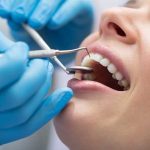Quick Healing: How Long Does It Take for Wisdom Teeth Holes to Close?
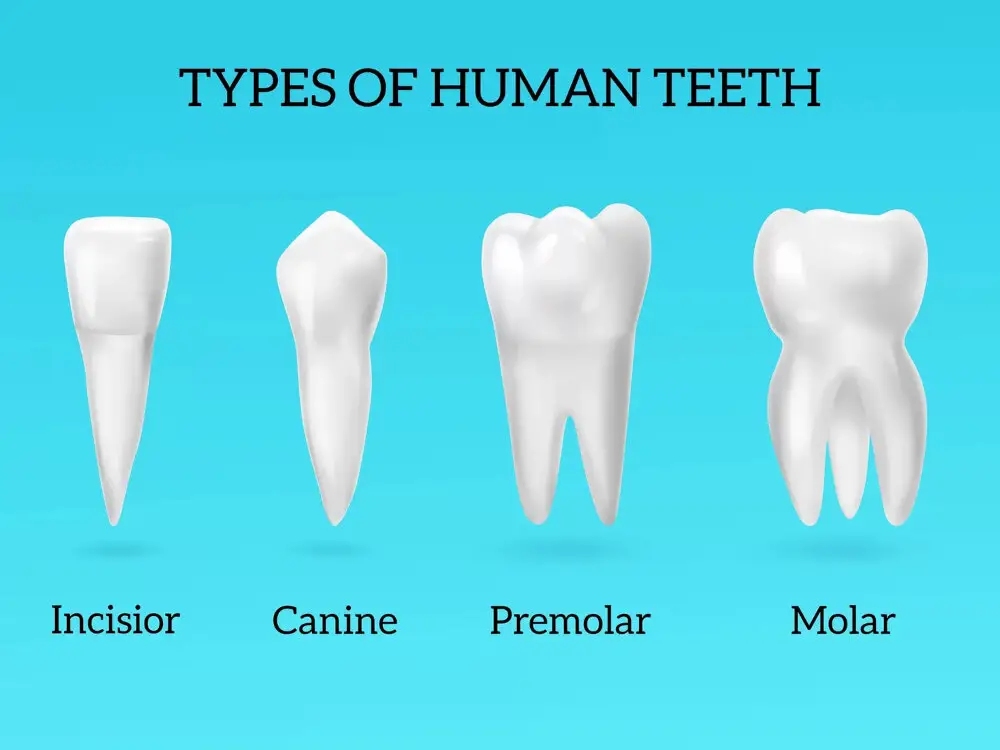
Wisdom teeth removal is a common dental procedure that many people go through in their lifetime. While the surgery itself may seem daunting, the healing process can also be a cause of concern, especially when it comes to the time it takes for the wisdom teeth holes to close. The length of time it takes for the holes to heal can vary from person to person, but there are some general guidelines that can help you understand what to expect during the healing process. Typically, it takes around two weeks for the wisdom teeth holes to close completely. However, this timeline can vary depending on a number of factors such as age, overall health, and any complications that may arise during the healing process. Some people may experience a faster healing time, while others may take longer to heal. It is important to follow your dentist’s instructions carefully and to keep a close eye on your healing progress to ensure that you are on track to a full recovery. In this article, we will explore the factors that can affect the healing process and give you tips to help you recover quickly from wisdom teeth removal.
Wisdom teeth extraction is a common surgical procedure that involves removing one or more of the third molars located at the back of the mouth. These teeth often cause problems when they try to erupt, as they can become impacted or grow in at an awkward angle. Extraction is typically recommended in these cases to prevent further dental complications, such as infection or damage to neighboring teeth. The procedure is usually done under local anesthesia, and patients can expect some discomfort and swelling in the days following the surgery. However, with proper care and attention, the holes left by the extracted teeth should heal within a few weeks, allowing for a full recovery.
Proper healing is crucial for the overall well-being of an individual. It is essential to allow the body to recover fully from any injury or surgery. In the case of wisdom teeth removal, it is vital to follow the post-operative instructions provided by the dentist to ensure proper healing. Failure to do so can lead to complications such as infections, excessive bleeding, and prolonged pain. Proper healing also ensures that the new tissue grows correctly, preventing future dental problems. It is essential to maintain good oral hygiene, follow a healthy diet, and avoid smoking or tobacco products to promote quick and proper healing after wisdom teeth extraction. Taking care of oneself during the healing process can lead to faster recovery and better overall health.
Factors Affecting Healing Time
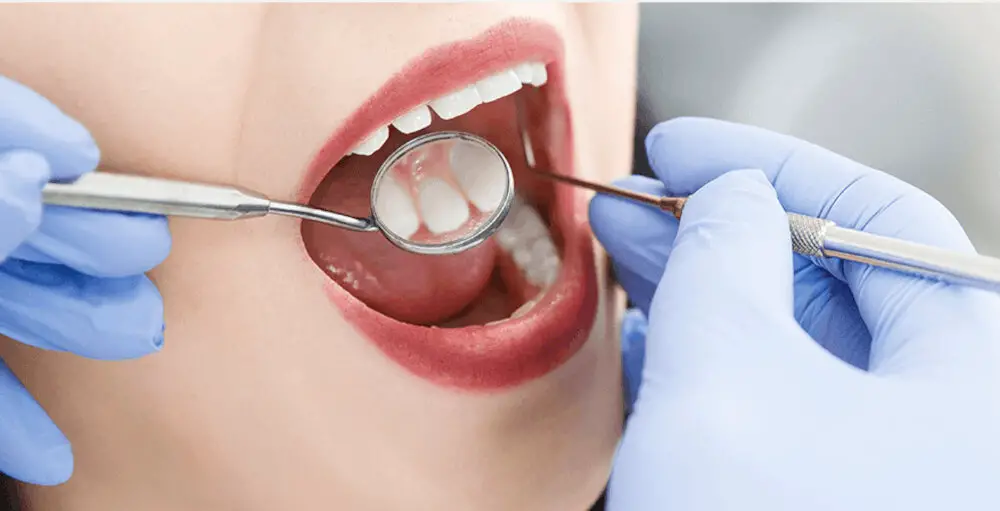
Healing time varies depending on several factors, and wisdom teeth extraction is no exception. One of the main factors is age. Younger patients tend to heal faster than older patients because their bodies are better equipped to produce new cells and repair tissue damage. Moreover, the overall health of the patient plays a crucial role in the healing process. Those who have underlying medical conditions, such as diabetes or compromised immune systems, may take longer to heal. Similarly, individuals who smoke or use tobacco products may experience delayed healing due to the reduced blood flow to the affected area. The extent of the surgery and the number of teeth extracted also affects healing time. Patients who have multiple wisdom teeth extracted at once may experience more significant discomfort and swelling, leading to a longer recovery period. Additionally, the location of the wisdom teeth may affect healing time. Teeth that are impacted or located deep in the jaw may require more extensive surgery, leading to a more extended healing period. Finally, post-operative care is essential for quick healing. Patients who follow their dentist’s instructions, such as taking medications as prescribed, keeping the surgical site clean, and avoiding strenuous physical activity, are more likely to have a faster recovery.
Age can play a significant role in the healing process of wisdom teeth extraction. Younger individuals tend to heal more quickly compared to older ones. This is because, as we age, our body’s regenerative abilities tend to slow down, making it harder to heal from injuries or surgeries. Moreover, the density and hardness of the jawbone also tend to increase with age, making it harder for the body to create new bone tissue and replace the extracted tooth. Therefore, it is vital to follow the dentist’s post-operative instructions carefully and maintain good oral hygiene to ensure a speedy recovery, regardless of age.
Overall health is crucial for the healing process of wisdom teeth extraction. A healthy lifestyle that includes balanced nutrition, regular exercise, and adequate sleep can promote a speedy recovery. It is essential to maintain good oral hygiene by brushing and flossing regularly to prevent infection and promote healing. Additionally, avoiding smoking and alcohol consumption can help reduce the risk of complications and promote faster healing. Adequate hydration is also essential for the body to heal properly. Finally, following the post-operative instructions provided by the dentist or surgeon is essential for a quick healing process.
Smoking can significantly affect the healing process of wisdom teeth holes. Smoking introduces harmful chemicals into the bloodstream, which can impede the body’s natural healing mechanisms. These chemicals can cause inflammation, delay the formation of blood clots, and reduce the flow of oxygen to the affected area. As a result, the healing process can take longer, and patients may experience more pain and discomfort. Additionally, smoking increases the risk of infections, which can lead to further complications. Therefore, it is recommended that patients avoid smoking for at least 48 hours after wisdom teeth extraction to ensure proper healing.
There are two main types of extraction for wisdom teeth: simple and surgical. Simple extraction is typically used for teeth that have fully erupted and can be easily removed with forceps. In contrast, surgical extraction is required for teeth that are impacted, meaning they are partially or fully submerged in the jawbone. This procedure involves making an incision in the gum tissue and sometimes removing a portion of the bone to access the tooth. After extraction, the healing time for both types of extraction can vary depending on factors such as age, overall health, and how well the patient follows post-operative care instructions.
Healing Time Frame
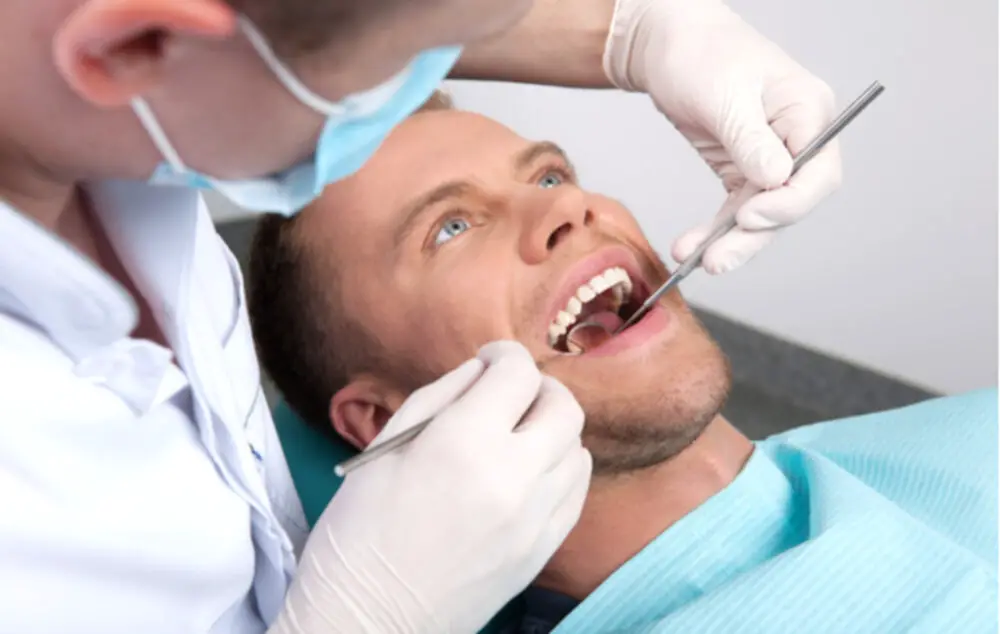
The healing time frame for wisdom teeth holes to close can vary depending on several factors. Typically, it takes about one to two weeks for the wound to heal completely. However, if the extraction was complicated or if there were any complications during the procedure, the healing time may take longer. The healing process can also be affected by age, overall health, and the patient’s ability to follow post-operative instructions. It’s important to follow the dentist’s recommendations to ensure proper healing and avoid any complications. During the first few days after the extraction, there will be some bleeding and discomfort. Patients are advised to rest, avoid strenuous activities, and eat only soft foods. It’s also essential to maintain good oral hygiene by gently brushing around the extraction site and using a saltwater rinse to help clean the area. After a few days, the bleeding should stop, and the pain should subside. Over time, the socket will fill with new tissue, and the gums will heal, closing the hole left by the extracted tooth. While the healing process can be uncomfortable, following the dentist’s recommendations can help ensure a quick and successful recovery.
The first 24 hours after wisdom teeth extraction are crucial for the healing process. It’s normal to experience some pain and swelling during this time, but these symptoms can be managed with pain medication and ice packs. It’s important to rest and avoid any strenuous activity, as this can prolong the healing process. Gentle rinsing with salt water can also help keep the area clean and promote healing. Eating soft foods and avoiding using straws is recommended to prevent dislodging the blood clot that forms in the socket. Overall, taking care of yourself during the first 24 hours can set the stage for a smoother and quicker healing process.
The first week after wisdom teeth extraction can be a challenging period for patients. Pain, swelling, and bleeding are common symptoms that may occur during this period. To help alleviate these symptoms, patients are advised to get enough rest, avoid smoking or using straws, and apply ice packs to the affected area. Additionally, a soft food diet is recommended to prevent irritating the extraction site. Proper oral hygiene is also important during this time to prevent infection. Although the first week can be uncomfortable, following these guidelines can help ensure a quicker healing process and successful closure of the wisdom teeth holes.
During the second week of healing after wisdom teeth extraction, patients may still experience some mild discomfort, swelling, and bruising. However, these symptoms should gradually subside as the body continues to heal. Patients should continue to follow their post-operative care instructions, which may include gently rinsing the mouth with salt water, avoiding hard or crunchy foods, and taking medication as prescribed. It is important for patients to listen to their bodies and avoid overexertion or activities that may disrupt the healing process. By the end of the second week, the holes left by the wisdom teeth should begin to close up, although it may take several more weeks for complete healing to occur.
The third week after wisdom tooth extraction is a crucial stage in the healing process. By this time, the gum tissue should have started to regenerate and cover the empty socket. However, the area may still be sensitive and tender, requiring gentle care during brushing and flossing. It is important to continue with the prescribed pain medication and follow-up appointments with the dentist to monitor any signs of infection or complications. During this time, patients may gradually resume a normal diet, but should still avoid hard, crunchy or sticky foods that could irritate the site. Overall, the third week marks a significant step towards complete healing and restoration of oral health.
The fourth week marks a significant milestone in the healing process of wisdom teeth holes. By this time, the gum tissue in the affected area is expected to have closed almost completely, and any residual soreness or discomfort should be minimal. However, it is still important to continue following your dentist’s post-operative instructions, such as avoiding hard or crunchy foods, rinsing with salt water, and not using straws to drink. By the end of the fourth week, most patients can resume their regular oral hygiene routine, including brushing and flossing, but should still be gentle around the healing site. Overall, the fourth week is a crucial time for the complete recovery of wisdom teeth removal, but patients should still take care not to rush the healing process.
Tips for Quick Healing

When it comes to quick healing, there are a few tips that can help speed up the process. One of the most important things you can do is to keep the area clean and free from bacteria. This means brushing your teeth regularly and rinsing your mouth with salt water after meals. You should also avoid smoking or using tobacco products, as these can delay the healing process and increase the risk of infection. Additionally, it’s important to eat a healthy diet that is rich in vitamins and minerals, as this can help your body heal more quickly. Another tip for quick healing is to rest and take it easy. If you have had surgery or a dental procedure, it’s important to give your body time to heal. This means avoiding strenuous activities and getting plenty of rest. You may also want to use ice packs or pain relievers to help reduce swelling and discomfort. Finally, it’s important to follow your dentist or doctor’s instructions carefully. This may include taking medication as prescribed, attending follow-up appointments, and avoiding certain foods or activities until you have fully healed. By taking care of yourself and following these tips, you can help ensure a speedy and successful recovery.
Proper oral hygiene is essential to maintain healthy teeth and gums, especially after wisdom teeth extraction. Brushing twice a day with fluoride toothpaste, flossing daily, and using an antibacterial mouthwash can prevent bacterial growth and promote healing. Avoiding hard or crunchy foods, smoking, and using straws can also aid in the healing process. Additionally, rinsing with warm salt water can soothe pain and reduce swelling. It is crucial to follow the dentist’s post-operative instructions to ensure proper oral hygiene and quick healing of the wisdom teeth extraction site.
Rest and recovery play a crucial role in the healing process after wisdom teeth extraction. It is recommended to take it easy for at least the first 24 hours after the procedure, avoiding physical activity, heavy lifting and driving. Applying ice packs to the cheeks and taking pain medication can also help reduce swelling and discomfort. Additionally, it is important to maintain a soft diet and avoid foods that may irritate the extraction site. Proper rest and recovery can help speed up the healing process and prevent complications, allowing patients to return to their normal activities as soon as possible.
Pain management is a crucial aspect of the healing process after wisdom teeth extraction. It is common to experience discomfort and pain in the first few days after the surgery. However, proper pain management techniques can help alleviate the pain and promote a smooth recovery. Over-the-counter pain medications such as ibuprofen and acetaminophen can be taken as directed by the dentist or oral surgeon to manage pain. Additionally, applying a cold compress to the affected area can also help reduce swelling and discomfort. It is essential to follow the dentist’s instructions and schedule follow-up appointments to monitor the healing process and ensure a successful recovery.
Follow-up appointments are crucial after wisdom teeth extraction as they allow the dentist to monitor the healing process and ensure that any potential complications are addressed promptly. During these appointments, the dentist will examine the extraction site, check for signs of infection, and make sure that the blood clot remains intact. Additionally, the dentist may provide instructions regarding proper oral hygiene and any dietary restrictions that may be necessary. These follow-up appointments are typically scheduled one week and two weeks after the extraction procedure, although the exact schedule may vary depending on the individual case. By attending these appointments, patients can ensure that their healing process is progressing smoothly and avoid any further complications.
The healing time of wisdom teeth holes is affected by various factors, including the patient’s age, overall health, and oral hygiene. Younger patients generally heal faster than older ones. Patients with good oral hygiene, who follow post-operative instructions, and maintain a healthy diet, tend to heal more quickly. Smoking and alcohol consumption can slow down the healing process, as can certain medications and medical conditions. To promote quick healing, it is recommended to rest for the first few days after surgery, use ice packs to reduce swelling, and take prescribed pain medication as directed. Soft foods should be consumed for the first few days, and patients should avoid using straws, rinsing, or spitting forcefully. Proper oral hygiene, including gently brushing and rinsing with saltwater, should be maintained, and follow-up appointments with the dentist or oral surgeon should be kept.
Healing is a process that takes time and patience, especially when it comes to wisdom teeth extraction. It’s important to remember that everyone’s healing process is different, and it may take longer for some individuals than others. Proper care during this time is crucial for a quick and successful recovery. This includes following your dentist’s instructions for pain management, maintaining good oral hygiene, and avoiding hard or chewy foods. It can be frustrating to have to take things slow, but it’s better to be cautious and ensure a proper healing process than to risk complications or prolong the process. Remember to be kind to yourself during this time and trust that your body will heal in its own time.
Conclusion
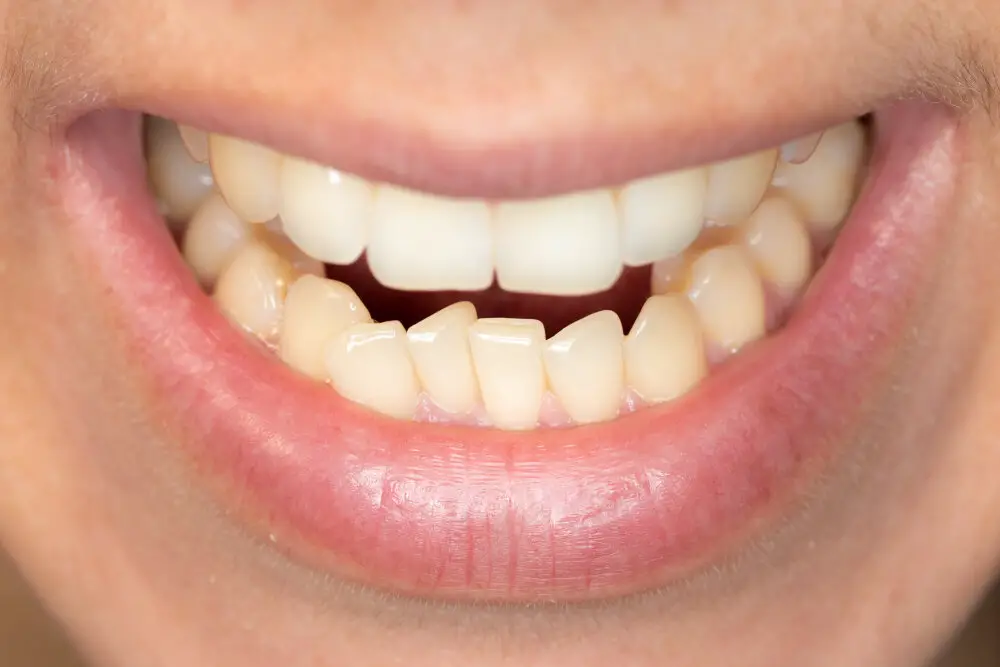
In conclusion, the healing time for wisdom teeth holes varies from person to person, and it can take anywhere from a few days to several weeks. Factors such as age, overall health, and the extensiveness of the extraction procedure can all impact the healing process. It’s important to follow your dentist’s aftercare instructions carefully, which may include things like taking pain medication, using ice packs, and avoiding certain foods. With the right care, most people can expect their wisdom teeth holes to close up completely within a month or two after the procedure. However, it’s always best to consult with your dentist if you have any concerns or experience unexpected symptoms during the healing process.





